A dream come true for introverts, suffering for extroverts, hell for victims of domestic violence = domestic isolation. The increase in calls on helplines during the three-month quarantine is worrying. The number of cases in which victims have not received the help they needed is alarming. Artist Natália Zavaďáková, a participant of our Home Residency program, responded to the problem of domestic violence with a series of unconventional artworks.
“I have a social phobia myself and I tend to isolate myself from the society,” Natália explains at the outset, “I’m interested in the context and impact on the mental health of people who suffer in isolation.” Due to the pandemic, she lost her job as an artist in a puppet theater and, by participating in a home residency, she decided to contribute to a discussion about the alarming rise of violence in many Slovak households during forced isolation.
Acute problem of shadow pandemic
Global statistics over the past year show that up to 243 million women between the ages of 15 and 49 have experienced sexual or physical violence in countries with a strong human rights background. These numbers are expected to increase due to the coronavirus pandemic. The frustration, fear and hopelessness that victims regularly experience have serious repercussions on their mental, sexual and reproductive health. Their general ability to be part of the society and the economy is also affected, according to the Institute for Labour and Family Research.
In the past 3 months, up to 1,251 women turned for help to Slovak aid providers, of which as many as 362 were new clients. The institute states that the largest increase occurred after the Easter holidays. At the beginning of April, an average of 3 women a week contacted one organization (out of 22 involved in the survey). At the beginning of June, it increased to 9 women a week. It is often said that in many cases alcohol was the main reason for the escalation of violence. Slovakia comes in 9th place in worldwide consumption. Of all the types of domestic violence (psychological, physical, economic), the most common criminal prosecutions in 2019 were for dangerous threats, of which only 9% were perpetrated against men. Seven women and five men died as a result of domestic violence in Slovakia last year.

“Len” facka © Natália Zavaďáková 
“Len” facka © Natália Zavaďáková
“The reality of painful crying in locked apartments contradicts the joyful but naive vision of “the most beautiful crying in the world”, which, according to the Slovak Prime Minister, should be “heard in hospitals around Christmas.”
NATÁLIA ZAVAĎÁKOVÁ
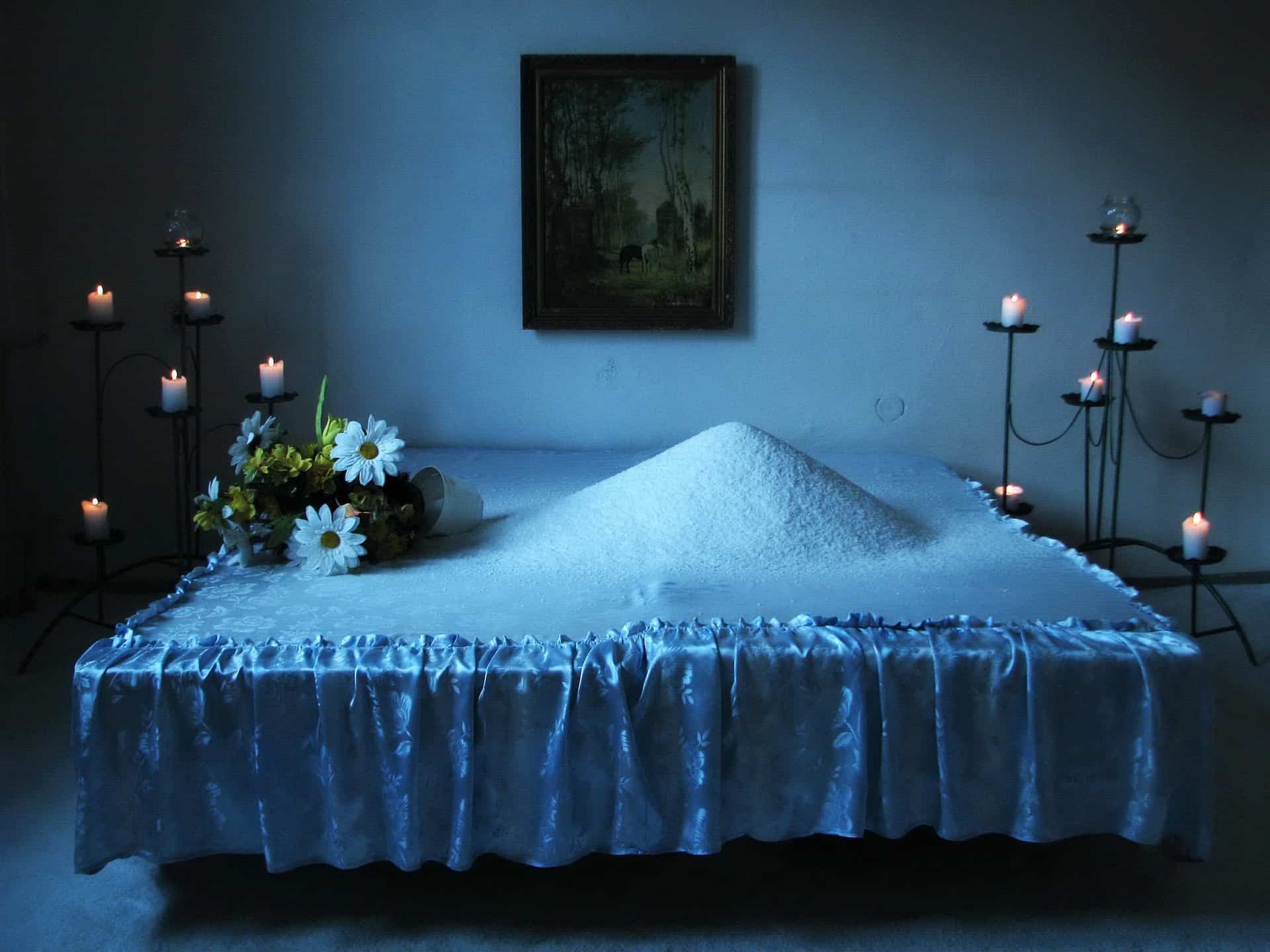

“Kvety pre teba” III. © Natália Zavaďáková 
“Kvety pre teba” II. © Natália Zavaďáková
Escalation and alarming rescue status
The corona crisis is an unprecedented and stressful situation. As a result, families came into much closer long-term contact than under normal circumstances. Many have experienced significant economic losses. One of the partners could lose their job and become dependent on a partner – the aggressor. Due to limited contacts with extended family and friends, victims of domestic violence found themselves in a situation with very limited access to help. As a result, the aggressors gained much more control over their victims and began to exercise their strength and power.
A comparison of current data with the same period a year ago proves that the direct cause for the escalation of domestic violence is quarantine. In April and May 2019, a national hotline set up by the Institute for Work and Family Research registered 49 new clients, while in April and May 2020 this number increased to 96. During 11 weeks of compulsory isolation, up to 173 women applied for crisis accommodation, which is on average 16 women each week. The aid providers state that they could only provide the necessary accommodation to 24 women and their 33 children at that time. Although it is not possible to find out how many of them applied for accommodation more than once or with different providers, even with a modest number of 100 real applicants, only one quarter of the applicants received assistance in an emergency. One of the problems was, for example, the obligation to accommodate women and children only after they completed a 14-day quarantine and they had a negative test for COVID-19. Access by the police is also key to protecting victims of domestic violence. Surveys show that in many cases the reporting of domestic violence ended after the arrival of the police with a reprimand rather than with an eviction of the aggressor.
“I am interested in the behavior of people who have a tendency to be aggressive while their usual ways of relieving mental tension are limited. I’m interested in testosterone-charged muscular fighters and the replacement targets for their violent needs.”
NATÁLIA ZAVAĎÁKOVÁ

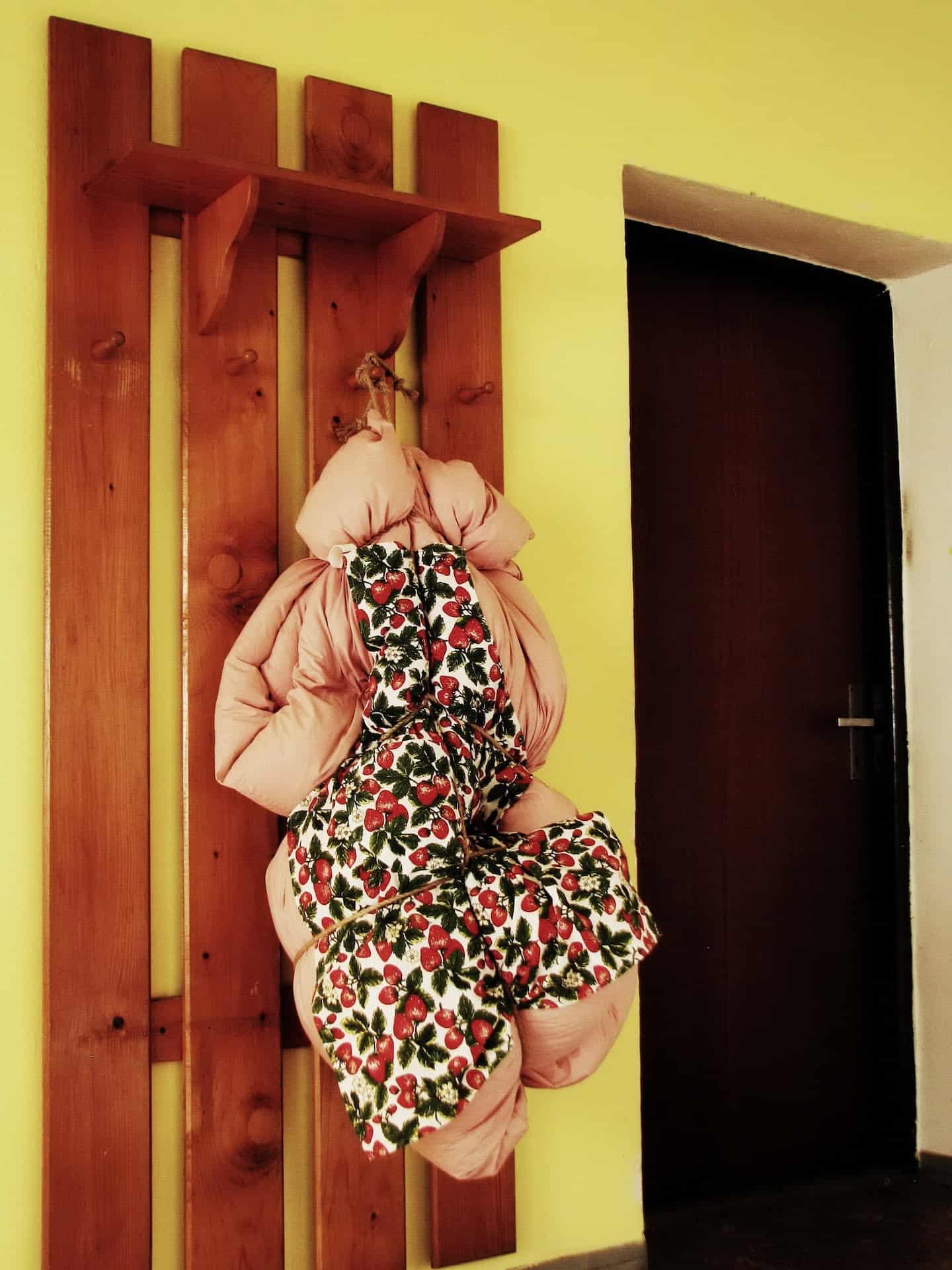
“Manželská povinnosť” © Natália Zavaďáková 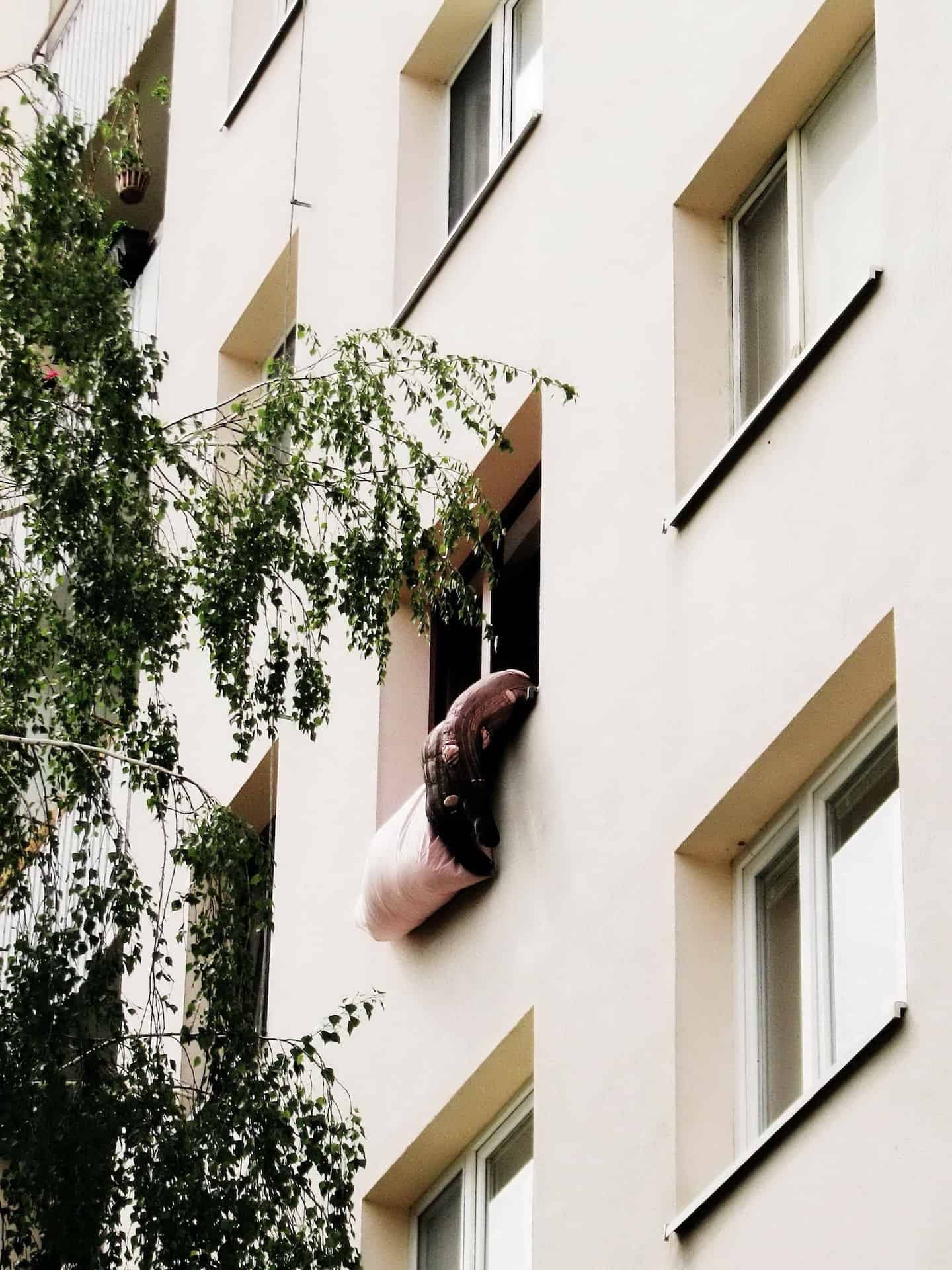
“Manželská povinnosť” © Natália Zavaďáková
Men also need help
The ManKind initiative states in its study that out of every three victims of domestic violence, two are women and one is a man. Of the four victims of persecution, three are women and one is a man. It showed that for homosexual (3.2%) and bisexual (3.3%) men, the rate of experience with domestic or partner violence is higher than for heterosexual men (2.8%). The same is true for lesbian women (7.6%) and bisexual women (9.1%) compared to heterosexual women (5.6%). As many as 45% of men who have experienced domestic violence suffer from some kind of emotional and mental disorders. In the case of women, it is up to 52%. In the years 2017 – 2018, up to 11% of abused men and 7.2% of women tried to take their life.
Among the most common reasons why male victims of domestic violence do not leave the relationship is their love for children, fear of not seeing them again, love for their partner, belief in change, the fact that they have nowhere to go, feelings of shame and, in extreme cases, fear for their own life. Clinical psychologist PhDr. Kleinmann states that in Slovakia the real number of abused men can be around 10%. The fact is that men often remain silent about domestic violence and their struggles in confinement. Men’s abuse most often has a psychological form – highlighting negative qualities, badmouthing them in the presence of strangers, criticizing, intimidating, refusing tenderness or provocative flirting with other men.
The analysis of data from Slovakia shows that the most common forms of committing domestic violence against men are psychological violence (57%), abuse of a close person (16.5%) and physical violence (13%). Economic violence in the form of theft also occurred in 9%. Sexual violence against men did not occur in Slovakia in any of the cases, while data show that physical violence against women is at the level of 13%, of which sexual represents 3%. These are exclusively cases which were reported to the competent authority.
Striking visuality
Natália resonates with her works of art – Happy Closure – in the ordinary viewer, but at the same time she does not want to traumatize the victim. She says that she has ultimately created a surreal picture of reality, which is in fact much more cruel. “Changing societal attitudes and attitudes in this area is exactly what can help victims of violence the most. They need more support from the state, which is currently largely on the shoulders of understaffed non-profit organizations. And the support I have in mind is not about preventing access to abortions,” she explains. Victims of domestic violence must not feel like a bother when asking for help. She considers visual art to be a powerful tool that has the potential to have a positive effect on society. “I am grateful for artists who address serious topics, where the most difficult balance is on the verge of tolerability for the people they touch. I would appreciate if personalities with a much larger media attention than I have also paid attention to them,” she adds.

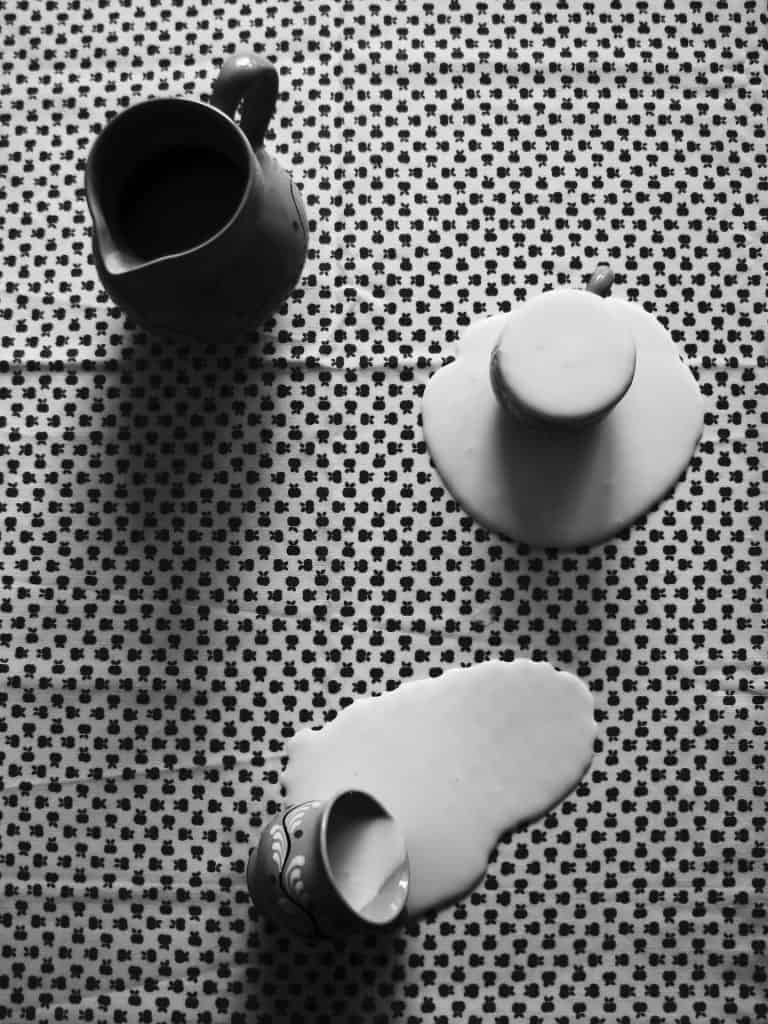
Ranný kefír © Natália Zavaďáková 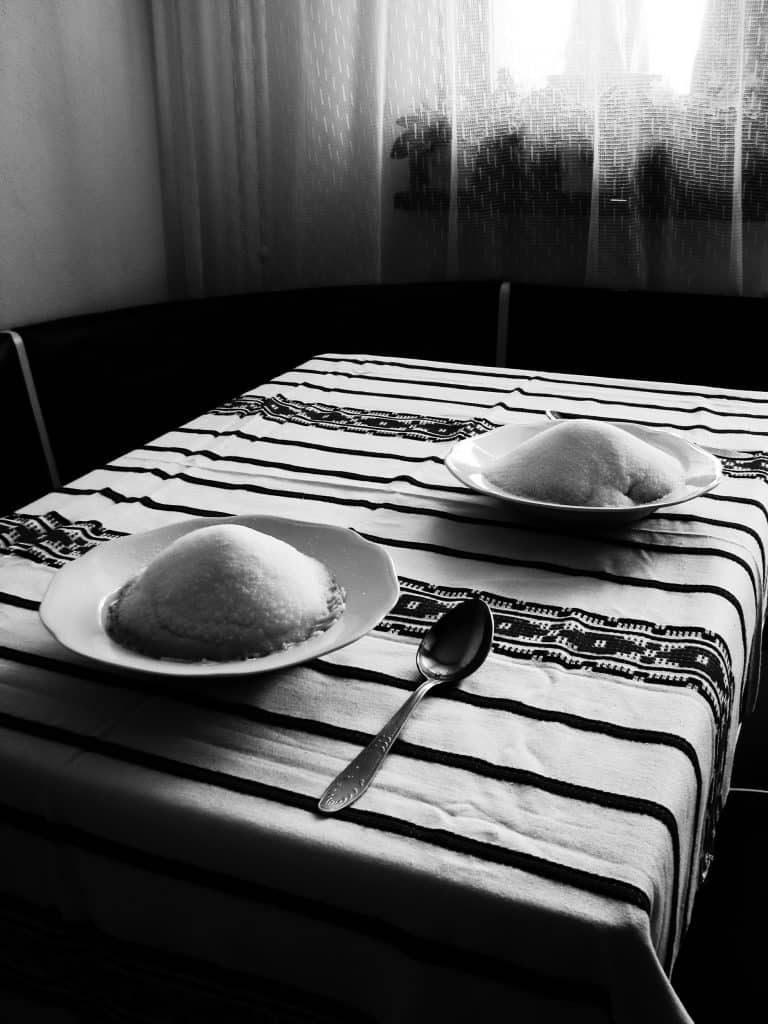
Tradičný obed © Natália Zavaďáková 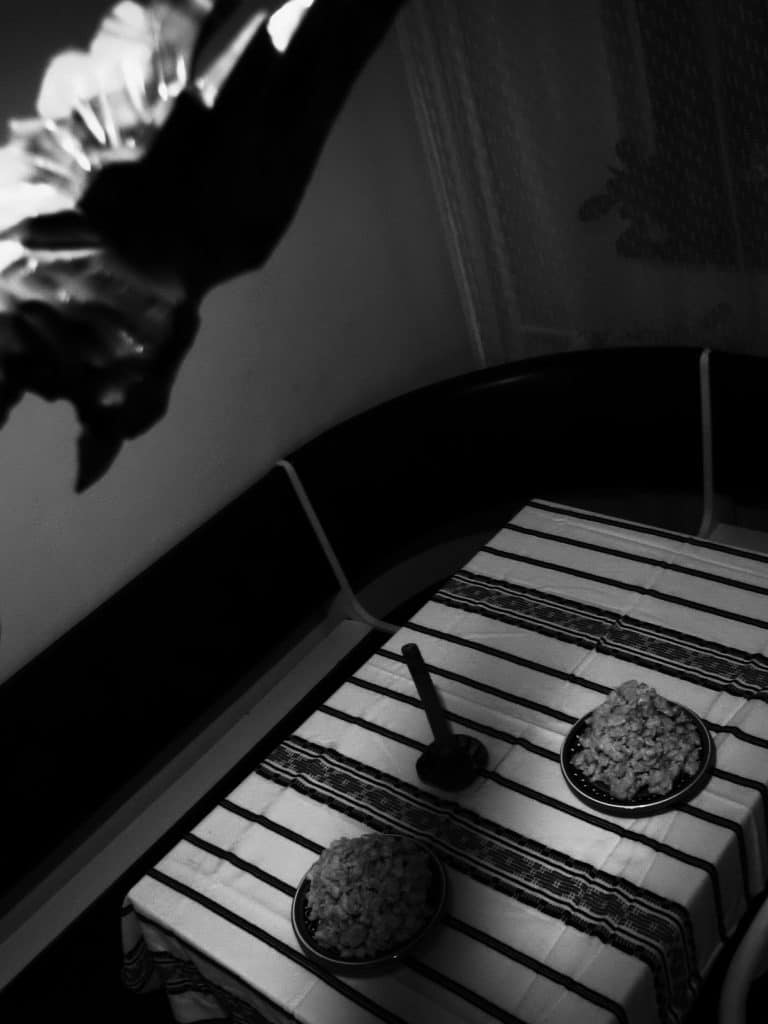
Ťažká večera © Natália Zavaďáková
“The duvet, as a symbol of warmth, safety and acceptance, turns into a bunker or trench wall, but not as part of a game – it becomes a real battlefield. Thrown pot covers land in her soft bowels. The duvets hung on the windows are like swollen, unruly feet of women in torn stockings. The companion is “stoned” with late ceramics. Artificial flowers bloom on the tombs, which have become beds burying peaceful sleep.”
NATÁLIA ZAVAĎÁKOVÁ

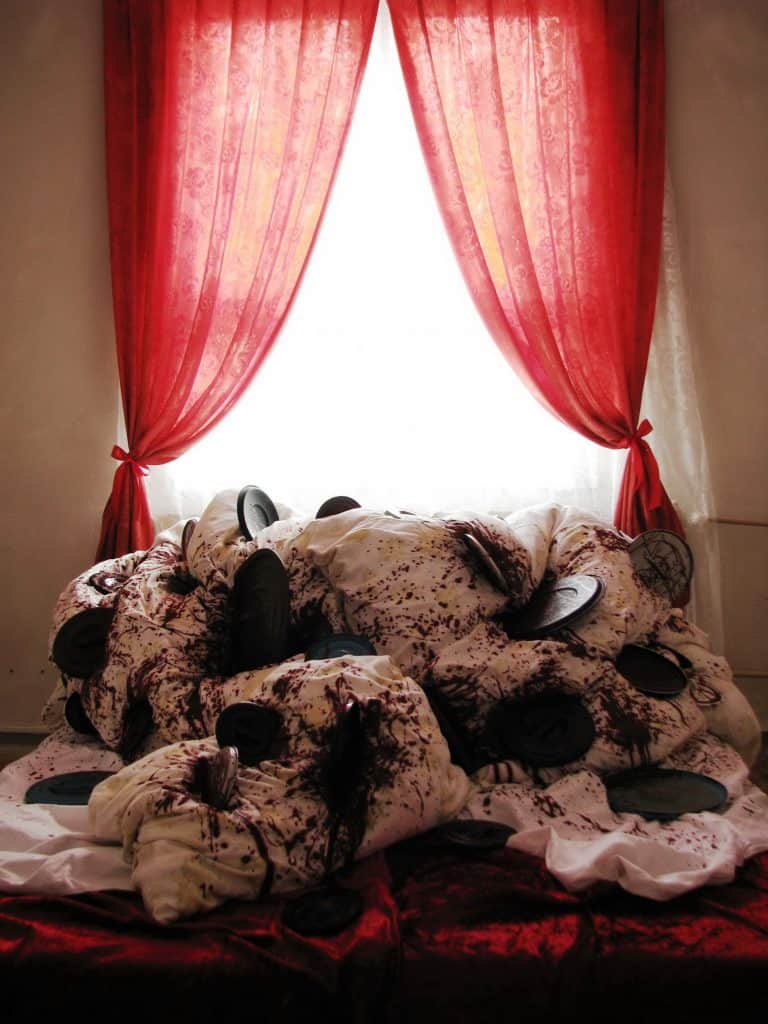
Ráno po… © Natália Zavaďáková 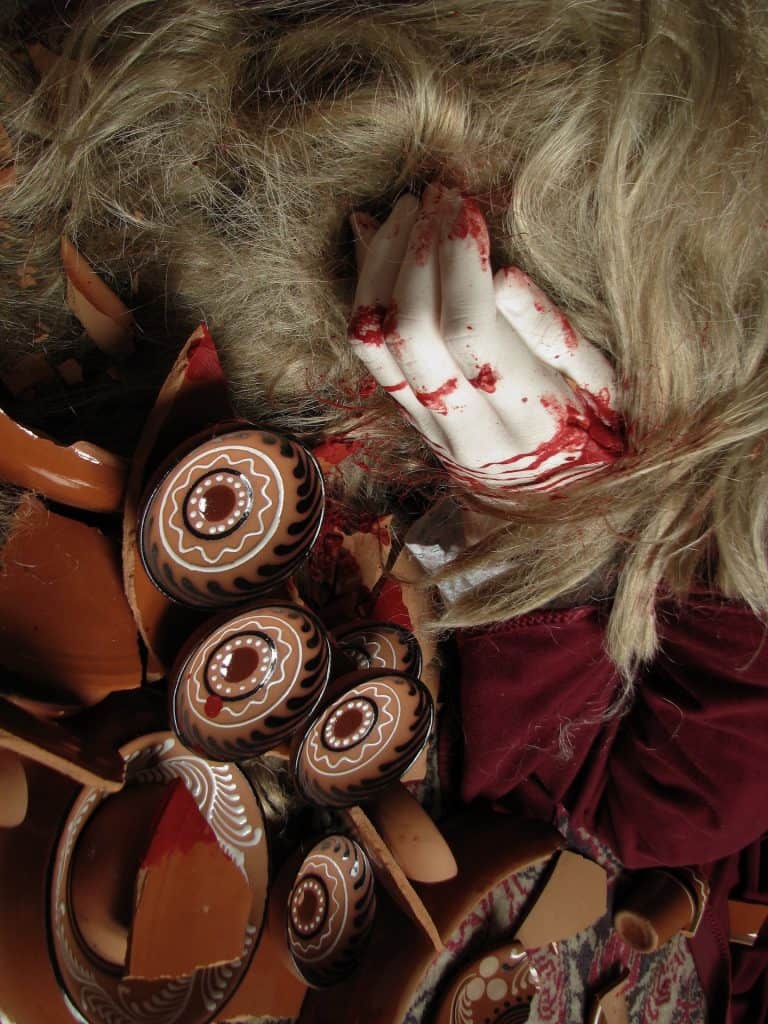
“Prepáč” © Natália Zavaďáková
Domestic violence cannot be justified
Any form of violence should be condemned and it is unacceptable to remain silent about it. Violence against women cannot be alleviated. The perpetrator is always responsible for the violence. The cause of violence is not an unequal position in society or an imbalance of power or gender roles.
As many as 1 in 5 women in Slovakia have experienced physical violence from a partner / husband, 1 in 2 women have experienced psychological violence, 1 in 3 women have experienced persecution offline and online, and 1 in 12 women have experienced sexual violence.
If you are a victim or witness of domestic violence, do not hesitate to contact:
– National Line for Women Experiencing Violence – 0800 212 212 (non-stop)
– Toll-free anonymous Hotline Trust Line – 0800 800 566 (non-stop)
– Internet counseling for young people – IPčko.sk
– Prepare a security plan
If you experience anxiety about the current coronavirus situation, feel free to contact:
– Crisis line for all – 0800 500 333 (non-stop)
– Official line established by the Government of the Slovak Republic with information on COVID-19 – 0800 221 234
The project is co-financed by the European Union’s Creative Europe program.







